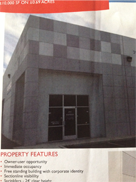It’s not because Ramey, who is 25 and wears his hair in a top-knot, is a coffee snob. He’ll go to any cafe. On Thursday morning, he was at the University District’s Café Allegro, the oldest espresso bar in Seattle. He ordered a drip coffee, which he takes without sugar.
“This cup of coffee is my right to sit down,” Ramey said. He taps the glass tabletop, pointing to a note under it: “This seating is for Café Allegro customers only.”
Ramey stays most nights across the alley at ROOTS Young Adult Shelter. They turn the lights on at 7 a.m. By 8 a.m., Ramey is usually in a coffee shop.
Only 66 percent of emergency shelter beds for youth and young adults were occupied from October 2016 to October 2017, according to data from All Home, the coordinating agency for homeless services in King County. In contrast, 86 percent of shelter beds for single adults are full on any given night.*
So staff and students at the University of Washington, alongside social workers in the U District, are experimenting with a new front door for homeless youth — a new kind of cafe.
The advocates call their effort The Doorway Project, and they envision a place where patrons come in from the cold and pay what they can — even if that means nothing — for food and coffee. Then they can talk with social workers in a setting where they don’t feel like objects of pity.
Money for the project came from Washington’s state Legislature; the UW and the nonprofit YouthCare are spending $500,000 this year to research, site and open the cafe.
Many youths come to the U District to blend in with all the students wearing backpacks, according to Josephine Ensign, a professor in the UW School of Nursing who coordinates the Doorway Project.
The UW’s Doorway Project is inspired by a cafe in Auckland, New Zealand. A Methodist church there had run a soup kitchen since 1885, but in the early 2000s, leadership realized it was doing little good.
“Our soup kitchen hosted people for a few minutes at a time — people just gobbled down their meal and disappeared,” said the Rev. John MacDonald.
In 2010, the church opened Merge Café, giving homeless people (“streeties” in Kiwi) a place to sit down, enjoy a meal and eat next to workers from the corporate office or real-estate company next door. Today, the cafe serves 3,500 meals a week.
It’s been so successful that MacDonald believes soup kitchens should be shut down. “I have no doubt about that,” he said. “The quicker you can push people through your soup kitchen and get them on the street again the better. We’ve flipped that model.”
The organizers of the Doorway Project in Seattle hope to take that central idea and apply it to the issue of stigma.
That stigma affects Ramey’s choice of friends: He doesn’t like to associate with other young people at the shelter and never tells anyone where he’s going or what he’s doing. He goes to cafes to work on his music, producing electronic dance music tracks in the hopes to one day be a DJ. The more people hanging out with him, the more distractions — and the bigger the chance he’ll get kicked out of a cafe.
“It’s a very humbling experience,” Ramey said of getting kicked out. “It made me feel less of a human being.”
On a recent Sunday, the Doorway Project tested their idea at the parking lot of the University Heights Community Center. As rain started to come down, social workers, students and professors, huddled under tents, waited behind tables of donated clothing, doughnuts and coffee. Green Tree Food Truck stood by with shawarma and fries.
The scarves and hats on the table were knitted by Ensign; she knits during long faculty meetings.
Word of the university’s experiment began to spread down University Way Northeast, The Ave. Gregg Fox, a middle-aged man carrying his bed roll on his back, took it on himself to spread the word to everyone crouched in doorways. By the end of the day, 65 people who otherwise wouldn’t have been able to afford food were fed. About 30 of the people who ate, Ensign estimates, were under 26.
Ensign said her team was willing to call it a success if a significant number of people showed up in the rain. The team has plenty of ideas for what to improve on when they hold another pop-up cafe next quarter. When one young person showed up, on a 45-degree day, in flip-flops, Ensign realized she needs to start knitting socks.
The next step, Ensign said, is identifying a place to put the cafe. The team has identified a few spots that look promising, and The Doorway Project is getting input from youths who have experienced or are experiencing homelessness themselves.
Ensign is excited: She feels that in homeless services, things often move at a “glacial speed.”
“We’re doing it instead of talking about it, and instead of having endless meetings,” Ensign said. “I think there’s enough enthusiasm and passion, across students and youth-serving agencies, that this could actually happen. It is going to happen.”
A previous version of this story misstated the name of Cafe Allegro.
*This story has been updated with data released since the publication of the article.










